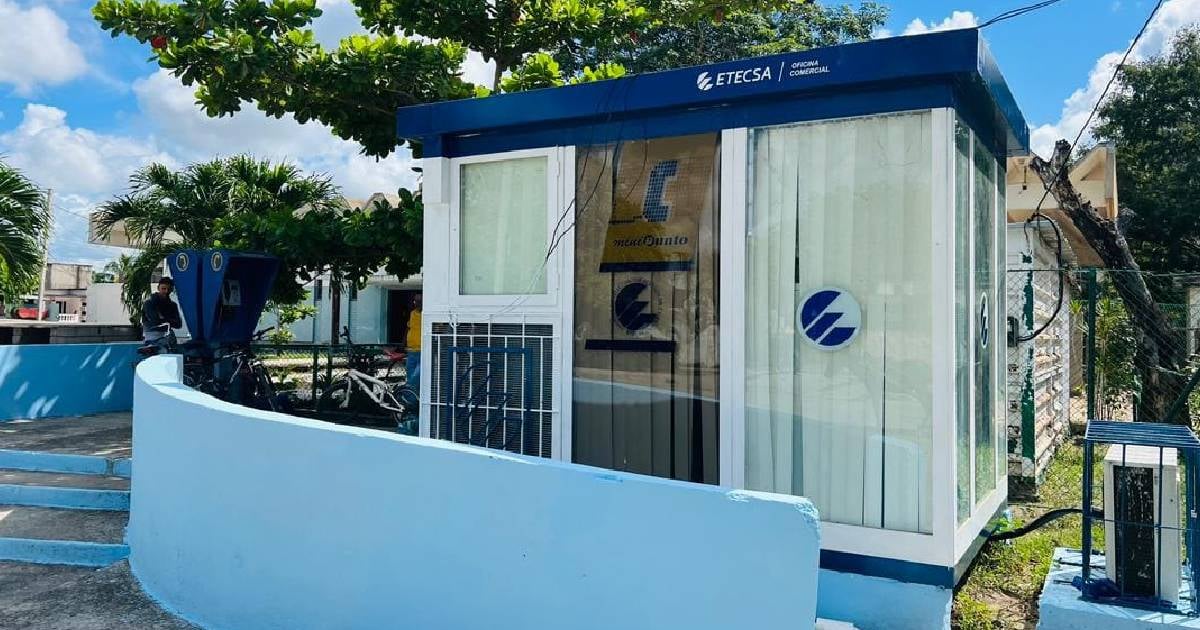
Related videos:
The Telecommunications Company of Cuba S.A. (Etecsa) recently issued a statement denying rumors of a supposed increase in internet browsing rates, which had circulated widely on social media and caused alarm among users.
However, the official response did not succeed in easing the criticism from Cubans, who questioned the transparency of the state-owned company and demanded greater clarity in the communication of its policies.
In the statement, Etecsa assured that the offers circulating on social media "date back to 2021 and have been modified over the last few years with other plans and packages."
They added that "new commercial actions are being prepared, which will be implemented in 2025. These are designed to maintain current prices up to a certain level of consumption."
Lastly, they added that the details of the new plans will be “communicated when the conditions for implementing these actions are established, always through our official channels.”
However, reactions on social media were immediate, and many users pointed out that the company did not clarify fundamental details about potential future adjustments.
"First of all, you should have provided complete information, so that so much misinformation would not have arisen. The culprits are you, as you have not informed us about anything, or do you still not know what you’re going to do and plan to improvise as you go? Although, based on what Marrero said, it points to a price increase," expressed a user on Twitter, reflecting the sentiment of a community that demands greater accessibility to internet services in a country where the rates are already considered high compared to the average salary.
The criticisms extend beyond the denial itself to the way Etecsa has managed communication with its customers in recent years. "This is a result of the secrecy that you yourselves maintain. If the Prime Minister announces changes, those changes should be published along with the information, not leave the population unaware for four days. It's always a half-hearted effort."
Other comments did not mask their unease about this situation. "Honestly, what you all are cooking up terrifies me; it can't be anything good. I hope I'm wrong."
Etecsa's denial comes in a context marked by the official announcement from the Cuban government, made by Prime Minister Manuel Marrero Cruz during an address to the National Assembly of People's Power (ANPP) held last week in Havana regarding the increase in internet package prices for the upcoming year.
According to the leader, this increase is due to the need to "adjust operating costs" amid the economic difficulties the country is facing.
This statement has generated discontent among citizens, who believe that current prices are already excessive in relation to the average income on the island.
Connectivity in Cuba has been a sensitive issue in recent years, with notable advancements such as the introduction of mobile internet, but also significant limitations due to high costs and technological restrictions.
Frequently Asked Questions about the Increase in Internet Rates in Cuba
Why has the Cuban government decided to raise internet rates?
The Cuban government has decided to raise internet fees to attract more foreign currency due to the severe economic crisis the country is facing. The goal is to adjust the pricing in national currency (MN) and encourage the consumption of packages priced in foreign currency, which would generate more revenue in dollars, especially from Cubans abroad.
What changes will ETECSA implement regarding internet packages?
ETECSA will introduce new internet packages and services in foreign currency, in addition to adjusting national currency rates with a consumption cap. Users who want to exceed this limit will have to pay additional rates in foreign currency, as part of a strategy to attract more dollars to the country.
How has the population reacted to the announcements of the internet price increases?
The population has reacted with widespread discontent to the announcements of increased internet fees, expressing their dissatisfaction mainly on social media. The Cuban regime is facing criticism for creating an "economic apartheid" that affects those who can only pay in national currency, while privileging those who have access to foreign currency.
What other economic measures is the Cuban government taking to address the economic crisis?
In addition to increasing internet rates, the Cuban government has implemented measures such as accepting cash payments in dollars in strategic sectors and establishing tariffs in foreign currency for imports in the non-state sector. These measures aim to attract more foreign currency and control the partial dollarization of the economy, although they face challenges due to the informal currency exchange market and the structural economic crisis.
Filed under: